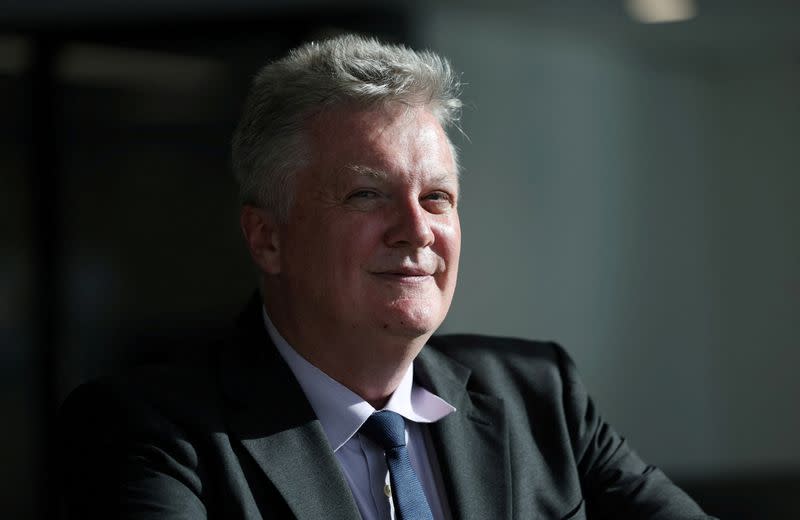Bank of England's Pill says mid-2024 might be time for rate cuts

LONDON (Reuters) -The Bank of England might wait until the middle of next year before cutting interest rates from their current 15-year high, the BoE's Chief Economist Huw Pill said on Monday.
Pill said pricing in financial markets - that currently points to a first rate cut to Bank Rate in August 2024 - "doesn't seem totally unreasonable, at least to me."
"It is at that point you might consider or reassess, if nothing new has happened, where we are going to have to be," Pill said during an online presentation organised by the BoE.
"But, of course, it is very unlikely that nothing will change over that nine-month period."
Last week the BoE held its benchmark rate at a 15-year high of 5.25% and said it was not thinking about cutting it as it continued to bear down on inflation which stood at 6.7% in September, lower than a peak of 11.1% in October 2022 but still more than three times its 2% target.
Pill said the central bank would continue to lean against the risk of inflation staying too high.
"But if we have the restrictive policy for too long, then the danger is...we trigger a recession, we trigger an excessive slowdown in the economy," he said.
Britain's economy is likely to flat-line over the next two years and grow by less than 1% in 2026, according to the BoE's latest forecasts. Many analysts think the economy is already entering a recession.
Pill said slowing the economy to fight inflation was "not easy" and he said the Monetary Policy Committee was "very aware" of the impact of its decisions on people on lower incomes.
(Reporting by William Schomberg, Editing by Andrew MacAskill and Sachin Ravikumar)

 Yahoo Finance
Yahoo Finance 